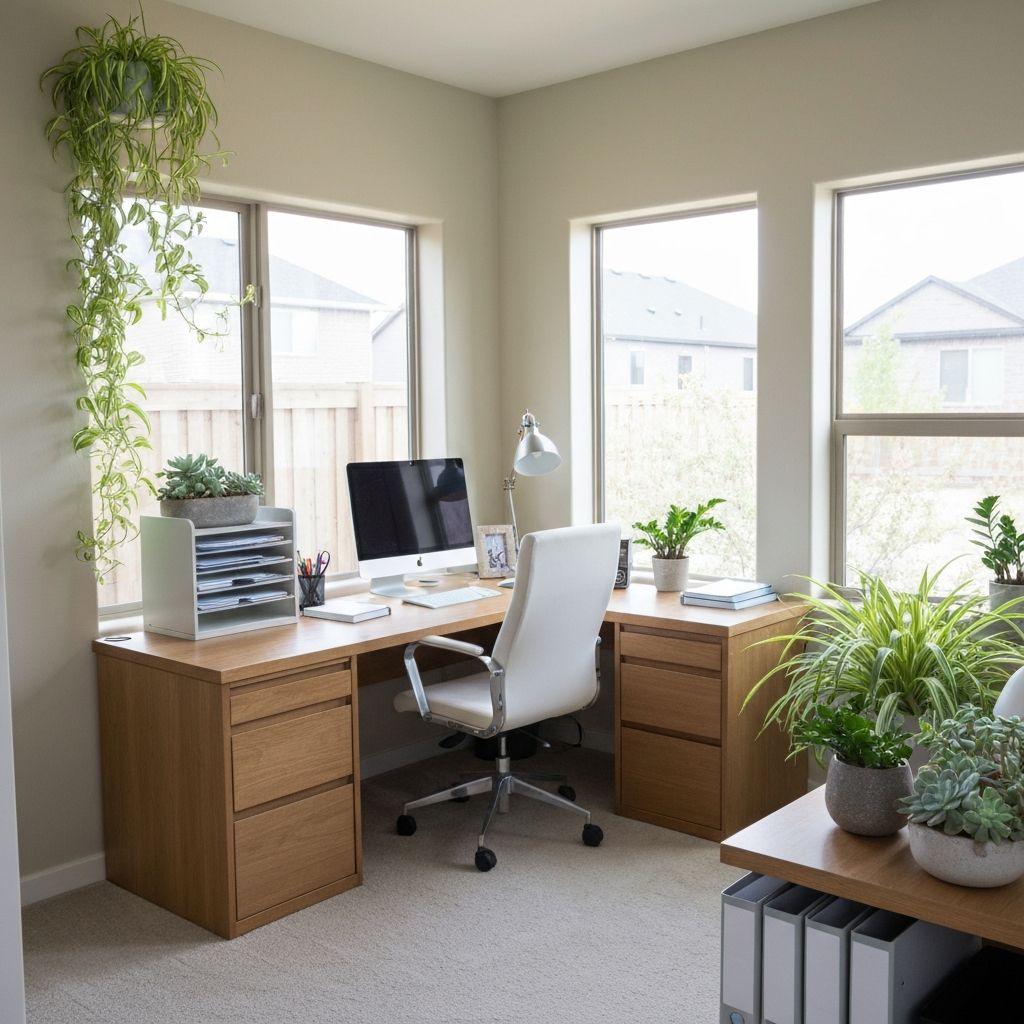Feng Shui for Mental Health and Emotional Wellness: Create Your Healing Sanctuary
April 20, 2025

Your environment profoundly impacts your mental health, yet most people underestimate how their living space affects their emotional well-being. Ancient Feng Shui wisdom, now validated by modern neuroscience and environmental psychology, reveals that thoughtfully designed spaces can significantly support mental health recovery, reduce anxiety, and promote emotional balance. Whether you're managing depression, anxiety, stress, or simply seeking to create a more emotionally nourishing home, these evidence-based Feng Shui principles can transform your space into a powerful ally for mental wellness.
Transform Your Space into a Healing Sanctuary with FengShui Hero
Ready to create a home that supports your mental health? FengShui Hero analyzes your space for emotional wellness factors, identifies stress-inducing elements, and provides personalized recommendations to create a healing environment. Get professional insights to design spaces that nurture your mind, body, and spirit.
The Science Behind Environment and Mental Health
Modern research confirms what Feng Shui masters have known for millennia: our environment directly influences our mental state. Studies in environmental psychology show that factors like lighting, color, organization, and spatial flow significantly impact mood, stress levels, and cognitive function.
How Your Space Affects Your Brain
Your living environment influences mental health through several key mechanisms:
- Cortisol regulation: Cluttered, chaotic spaces increase stress hormone production
- Serotonin production: Natural light and organized spaces boost mood-regulating neurotransmitters
- Dopamine pathways: Beautiful, harmonious environments activate reward and pleasure centers
- Circadian rhythms: Proper lighting and color temperature support healthy sleep-wake cycles
- Cognitive load: Simplified, organized spaces reduce mental fatigue and improve focus
Creating Spaces for Specific Mental Health Challenges
Different mental health conditions benefit from specific environmental modifications. Understanding these targeted approaches allows you to create spaces that actively support your healing journey.
Feng Shui for Anxiety Relief
Anxiety thrives in chaotic, unpredictable environments. Create calm, grounding spaces that promote feelings of safety and control.
Essential Elements for Anxiety Relief:
- Earth element dominance: Use earth tones, square shapes, and natural materials for grounding
- Soft, curved lines: Avoid sharp angles and pointed objects that create tension
- Consistent lighting: Eliminate harsh shadows and sudden light changes
- Organized storage: Hidden storage reduces visual chaos and mental overwhelm
- Comfort zones: Create cozy nooks with soft textures and supportive seating
Colors for Anxiety Management:
- Soft blues: Naturally calming and associated with peace and tranquility
- Sage green: Connects to nature and promotes emotional balance
- Warm beige: Provides stability and comfort without stimulation
- Lavender: Scientifically proven to reduce anxiety and promote relaxation
Feng Shui for Depression Support
Depression often involves low energy, isolation, and disconnection from joy. Create uplifting spaces that gently encourage engagement and hope.
Energy-Lifting Strategies:
- Maximize natural light: Open curtains, clean windows, and use mirrors to reflect light
- Introduce gentle yang energy: Add plants, flowing water features, and uplifting artwork
- Create activity zones: Designate spaces for hobbies, exercise, and social connection
- Use warming colors: Soft yellows, peaches, and warm whites can lift mood
- Display meaningful objects: Photos, achievements, and personal treasures that spark joy

Room-by-Room Mental Health Feng Shui
Each room in your home serves different psychological functions. Optimize each space to support specific aspects of mental wellness.
Bedroom: Your Restoration Sanctuary
Quality sleep is fundamental to mental health. Your bedroom should promote deep rest, emotional processing, and morning motivation.
Sleep-Supporting Elements:
- Command position bed: Position bed to see the door while lying down for subconscious security
- Blackout capabilities: Control light exposure for healthy circadian rhythms
- Cool color palette: Blues, greens, and soft neutrals promote restful sleep
- Natural materials: Wood, cotton, and linen create connection to nature
- Minimal electronics: Reduce EMF exposure and mental stimulation before sleep
What to Remove from Your Bedroom:
- Work materials and reminders of stress
- Mirrors facing the bed (can create restless energy)
- Clutter under the bed or in sight lines
- Bright, stimulating colors or artwork
- Exercise equipment (creates active energy when rest is needed)
Living Room: Social Connection and Joy
Your living room should encourage social interaction, relaxation, and activities that bring joy and connection.
Connection-Enhancing Setup:
- Conversation-friendly seating: Arrange furniture to facilitate face-to-face interaction
- Warm, inviting lighting: Layer different light sources for various moods and activities
- Nature elements: Plants, natural textures, and views of outdoors
- Personal touches: Display items that reflect your interests and relationships
- Flexible spaces: Areas that can adapt to different activities and group sizes

The Five Elements for Emotional Balance
Each of the five Feng Shui elements supports different aspects of emotional wellness. Understanding how to balance these elements creates comprehensive mental health support.
For a deeper understanding of how these elements work together, explore our comprehensive guide to The Five Elements of Feng Shui.
Your home has the power to be your greatest ally in mental health and emotional wellness. By thoughtfully applying these Feng Shui principles, you create an environment that not only supports your current well-being but actively promotes healing, growth, and resilience.
Remember that creating a healing space is a process, not a destination. Start with small changes that feel manageable and build upon them as you notice improvements in your mental and emotional state. Your space should evolve with your healing journey, always supporting your path toward greater wellness and joy.
If you're struggling with mental health challenges, please remember that environmental changes work best alongside professional support. Don't hesitate to reach out to mental health professionals, trusted friends, or support groups as part of your comprehensive wellness approach.
For foundational knowledge to support your mental health Feng Shui journey, start with our Introduction to Feng Shui or explore how AI can enhance your Feng Shui practice for personalized mental health support.
May your home become a sanctuary of healing, hope, and emotional wellness. 🌿💚✨


